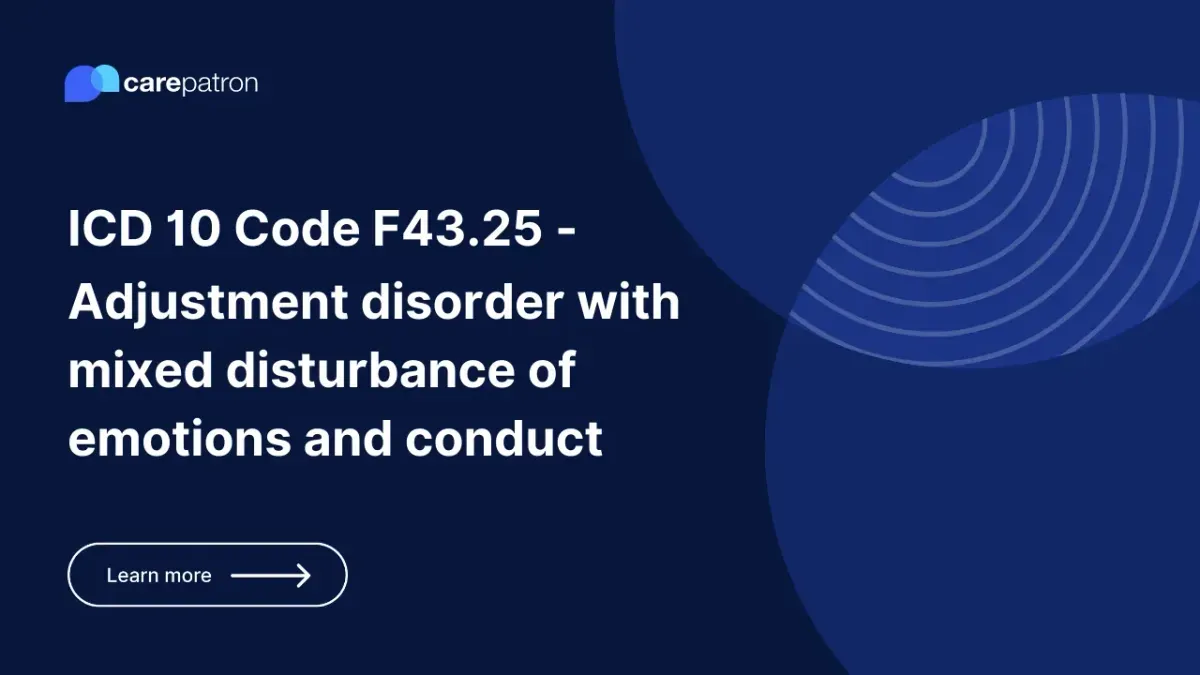
F43.25 – Adjustment disorder with mixed disturbance of emotions and conduct
Understand the ICD-10 code F43.25, adjustment disorder with mixed disturbance of emotions and conduct, its clinical info, & its relevance in healthcare billing.
Use Code
Commonly asked questions
Symptoms include emotional distress, sadness or hopelessness, and behavioral problems, like fighting or reckless driving.
Diagnosis involves a comprehensive evaluation by a healthcare provider, including a detailed interview and discussion about the symptoms and the event that triggered them.
Treatment often involves psychotherapy, where the person can discuss the stressor and learn coping mechanisms. In some cases, medication may be recommended.
EHR and practice management software
Get started for free
*No credit card required
Free
$0/usd
Unlimited clients
Telehealth
1GB of storage
Client portal text
Automated billing and online payments
